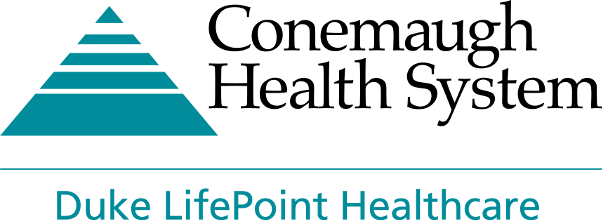Rotations
Anesthesia
Students, acting as junior interns, function in the Department of Anesthesiology under the supervision of a staff anesthesiologist. Students learn pre- and postoperative evaluation of a patient, manage the patient, and manage administration of anesthetic agents. All types of anesthetic procedures, including regional and general, are included in the clerkship. Students spend each morning in surgery and have the opportunity to work in the Pain Clinic in the afternoon or assist with pre-/post-operative care.
Cardiology
Students participate in testing procedures including echocardiography, Holter monitoring, and treadmill stress testing. Patients are discussed in depth at attending/student conferences held three times a week. Students should expect to see one to two new consults per day.
Critical Care - Medical
Students are closely involved with a functioning residency team managing critically ill patients. Students work with the resident team and function under the supervision of the senior ICU resident, as well as the intensivist who rounds with the team daily.
Critical Care - Trauma Surgical
Students function as sub-interns on the trauma service under the supervision of the resident and attending staff. Exposure to management of trauma victims as a member of the trauma team is emphasized. Trauma operative experience is provided.
Emergency Medicine
Third-year students work directly with board-certified and board-prepared emergency physicians to participate in history and physical examination, differential diagnosis, and disposition of patients. Students gain hands-on experience with common emergency procedures and develop skills essential to the practice of emergency medicine.
Fourth-year skill level is stressed to ensure proficiency in common skills essential for all physicians graduating from medical school. Students are offered pre-hospital rotations in air medical transport / scene response and paramedic field participation. Medical students are urged to participate in all shifts in the Emergency Department to gain exposure to various aspects of emergency medicine.
Family Medicine
Students obtain an understanding of the broad field of Family Medicine as the model of primary care, and promote the importance of continuous, comprehensive, coordinated, and concerned care for families and patients of all age groups. Students are given patient care responsibilities under the supervision of Family Medicine residents and attending physicians in ambulatory settings.
Gastroenterology
Students gain a broad spectrum of experience in Conemaugh Memorial Medical Center's state-of-the-art Gastroenterology Laboratory, on the inpatient service, and in physician offices. Faculty members encourage and keep students aware of current methodologies in the field and reinforce basic knowledge with clinical experience in gastroenterology. Students participate in the Gastroenterology Laboratory, primarily as it relates to endoscopy procedures.
General Surgery
Students function as a sub-intern in general surgery and trauma surgery under the supervision of the resident and attending physicians. Daily rounds, pre- /post-operative care, and operating room experience are provided.
Medical Oncology
Students participate primarily in inpatient services of the attending physician. Students report daily for work rounds with the attending and a second-year Internal Medicine resident. Students experience exposure to oncology as it exists in teaching community hospitals.
Orthopedics
Students function as junior interns and are exposed to orthopedic examination, the use of cast and splint material, and various orthopedic procedures. Students accompany the preceptor in the operating room and assume responsibility for patient care commensurate with their ability under the supervision. This rotation provides exposure to orthopedic surgery as it exists in a teaching community hospital and private practice.
Pediatrics
Students have the opportunity to work in a community hospital and private physician office. Students assess and follow new admissions with consent and under the supervision of the attending physicians, including well and sick newborns. Additional time may be spent learning normal infant development and principles of well-child care. Exposure to the evaluation of child abuse cases is available.
Psychiatry
Rotations include inpatient, outpatient, and consultation services. Students are under the direct supervision of the inpatient-attending psychiatrist and are expected to participate actively in the care of the patient. The supervising psychiatrist provides lectures, and assigned readings and literature searches. Students are exposed to issues with children, adults, geriatric patients, dual diagnosis population (substance disorders), and liaison services.
Radiology
Students gain exposure to multiple imaging cases. Students will become familiar with reading general emergency room radiographs, including bone films, chest X-rays, and abdominal studies; understand pathological conditions which can be seen on radiographs; become familiar with reading ICU films, including line and tube placement and identification; be able to identify critical findings in CT: head, neck, chest, abdomen, pelvis, and axial skeleton; Gain exposure to fluoroscopy including upper GI studies, small bowel, and barium enemas; gain exposure to ultrasound: abdominal and pelvic imaging; gain exposure to mammography; obtain brief introduction to MRI, especially MR and MRA brain. Students can also participate in clinical discussions.
Rural Family Medicine
Students will be exposed to a full complement of rural family medicine patients from infants to advanced geriatric patients. They will be expected to participate in thorough examinations and form treatment decisions including the use of OMT. Additional experience can be gained in minor surgery, laceration repair, wound care, 24-hour blood pressure monitoring, and continuous glucose monitoring. On-site lab and X-ray provide further experience as well as exposure to mammography, ultrasound, and electromyography. The attached physical and occupational therapy office will provide insite and instruction in those modalities of treatment.
